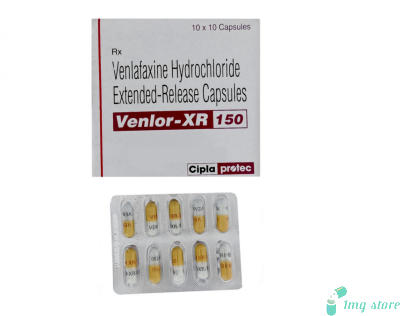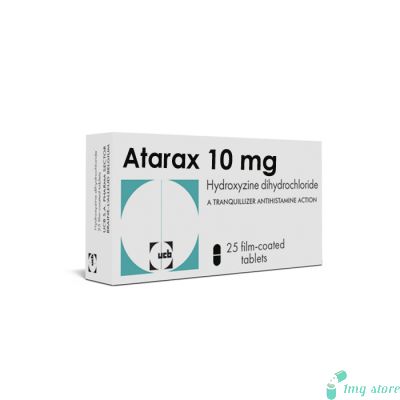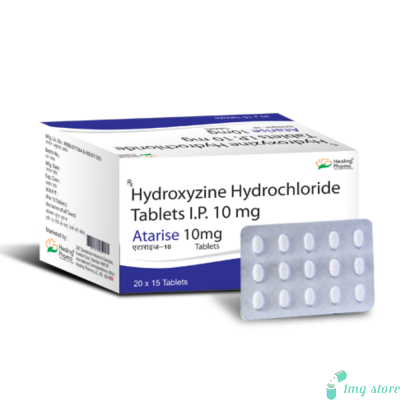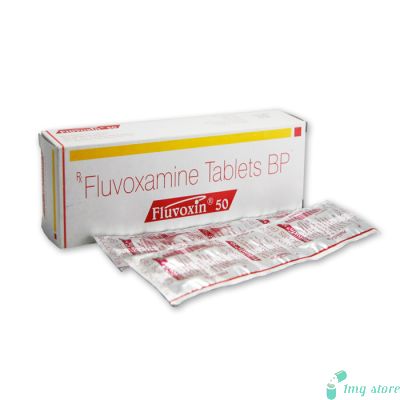Generic Venlafaxine (Affexor Tablet)
Venlafaxine er 150 mg, sold under the brand name Affexor and Effexor. Venlafaxine is a member of the class of drugs known as serotonin-noradrenaline reuptake inhibitors (SNRIs). Venlafaxine ER helps to restore your sense of well-being by raising serotonin and noradrenaline levels in the brain.
Venlafaxine Tablet (Effexor): For Anxiety Disorders
Major depressive disorder is treated with Venlafaxine ER, which also keeps it from returning. Additionally, anxiety and panic attacks are treated with it.
Depression can cause both emotional and physical symptoms, such as low mood, poor appetite, and lack of energy. Excessive anxiety can cause uncontrollable worry and distress. It can lead to irritability, difficulty sleeping, and difficulty concentrating.
Benefits Of Affexor Tablet
Venlafaxine (Affexor Tablet) offers several benefits for individuals who require its therapeutic effects. Here are some of the potential benefits of Venlafaxine:
Treatment for Depression: Venlafaxine is an antidepressant as it helps reduce depression, loss of interest in activities and changes in appetite.
Effexor for anxiety: Venlafaxine treats anxiety disorder (GAD), social anxiety disorder, and panic disorder.
Dual Action: As an inhibitor, Venlafaxine increases serotonin and norepinephrine in the brain.
Flexibility in Dosage: Venlafaxine is available in different strengths, allowing healthcare professionals to tailor the dosage to the individual's needs. This reduces the side-effects.
Effectiveness: Venlafaxine has shown good results in treating depression and anxiety disorders.
How much to take
Depending on your condition and whether you are taking any other medications, your doctor will advise you on how much of this medicine to take. A single daily dose of 75 mg is the standard starting dosage. If needed, your doctor might raise your dosage after two weeks. A single day’s worth of dosage should be at most 225 mg.
Before you start the medication
1. Inform your doctor of any allergies to other foods, medications, dyes, or preservatives.
2. If any of the following conditions apply to you or if you have ever had any of them:
- epilepsy, fits, or seizures
- a history of bipolar disorder in one’s family or personally
- a history of aggression
- a history of restlessness or trouble staying motionless
- drug abuse or misuse
- blood pressure problems
- diabetes
- acute angle glaucoma or elevated ocular pressure
- an inclination to bleed more frequently than usual or other blood conditions
- elevated cholesterol or you’re on a cholesterol-lowering medication
- kidney or liver problems
- low blood sodium levels or the illness known as Syndrome of Inappropriate Antidiuretic Hormone Secretion, or SIADH
- ideas or deeds connected to suicide or self-harm
- heart issues, particularly those that result in irregular heartbeats — while on Venlafaxine ER, your doctor might want to perform certain cardiac tests, like an electrocardiogram (ECG) or blood tests.
3. Inform your doctor if you are or intend to become pregnant.
According to some reports, babies exposed to venlafaxine and other antidepressants in the third trimester of pregnancy may have problems breathing, have seizures, or have low blood oxygen levels after delivery. When taking venlafaxine or other comparable antidepressants during pregnancy, adhere closely to your doctor’s instructions. If you are pregnant, wait to take this medication until you and your doctor have talked about the advantages and disadvantages.
4. It is important to inform your doctor and pharmacist about any additional medications you may be taking, including over-the-counter medications from your pharmacy, grocery store, or health food store.
Uses for Venlafaxine Tablet (Effexor):
Anxiety Disorders: effexor xr 75mg is used to treat various anxiety disorders, including generalized anxiety disorder (GAD), panic disorder, social anxiety disorder, and post-traumatic stress disorder (PTSD). Effexor for anxiety and panic attacks reduce symptoms such as excessive worry, panic attacks, and social anxiety.
Depression: Effexor for anxiety is used for the treatment of major depressive disorder. It improves mood, reduce feelings of sadness or hopelessness, and restore a sense of well-being but all depends on Venlafaxine dosage.
Neurology Disorders: Venlafaxine (Effexor) may be used as an adjunctive treatment in certain neurology disorders. Effexor for anxiety and depression related symptoms and provide relief.
Off-Label Uses: In some cases, Venlafaxine (Effexor) may be prescribed off-label for conditions like hot flashes associated with menopause, attention-deficit hyperactivity disorder (ADHD), and obsessive-compulsive disorder (OCD).
It's important to note that the use of Venlafaxine er 150 mg should always be determined by a healthcare professional who will assess your specific condition, symptoms, and medical history.
Some Of The Effexor xr side effects:
Nausea: One of the common side effects of Venlafaxine is nausea. Some individuals may experience feelings of queasiness or an upset stomach, particularly during the initial weeks of treatment.
Dizziness: Venlafaxine can cause dizziness or lightheadedness. It is advisable to rise slowly from sitting or lying down positions to minimize the risk of falls or accidents.
Drowsiness: Some people may experience drowsiness or a feeling of being excessively tired while taking Venlafaxine.
Insomnia: Venlafaxine can disrupt sleep patterns and lead to difficulty falling asleep or staying asleep.
Dry Mouth: A common side effect of Venlafaxine is dry mouth. You should Maintain a good oral hygiene and stay hydrated.
Changes in Appetite: Venlafaxine may cause changes in appetite, leading to increased or decreased food intake. Monitoring your eating habits and discussing any significant changes with your healthcare provider is recommended.
Sweating: Some individuals may experience excessive sweating while taking Venlafaxine er 150 mg. This can occur during the day or at night.
Sexual Dysfunction: Venlafaxine may contribute to sexual side effects, such as decreased libido, difficulty achieving orgasm, or erectile dysfunction.
Increased Blood Pressure: venlafaxine er 150 mg capsules side effects may cause a slight increase in blood pressure.
Withdrawal Symptoms: Effexor xr side effects after stopping can result in withdrawal symptoms such as dizziness, anxiety, irritability, headache, and flu-like symptoms. It is important to work closely with your healthcare provider to taper the medication gradually when discontinuing treatment.
Concerns About Generic Venlafaxine (Affexor Tablet)
- Can Venlafaxine (Effexor) be used to treat bipolar disorder?
Venlafaxine is not recommended ain the first place for treatment of bipolar disorder. Consult with a healthcare professional to explore suitable treatment options for bipolar disorder. - How long does it take for Venlafaxine (Effexor) to start working?
The results for effexor xr 300 mg can vary from person to person. Some individuals may start noticing improvements in their symptoms within a few weeks or some may take a little longer. - Can I drink alcohol while taking Venlafaxine (Effexor)?
It is generally advised to avoid or limit alcohol consumption while taking Venlafaxine. Alcohol can increase the risk of side effects. Alcohol may interact with the medication, showing different results. - Are there any dietary restrictions or considerations while taking Venlafaxine (Effexor)?
Venlafaxine does not typically have specific dietary restrictions. You should maintain a healthy and balanced diet while on this medication. Certain foods or beverages may have adverse interactions, soconsuly your healthcare provider about your dietary habits and any potential concerns. - Can Venlafaxine (Effexor) be used during pregnancy?
Venlafaxine during pregnancy should be carefully taken and discussed with a healthcare provider. Venlafaxine may have potential risks to the developing fetus. Venlafaxine during pregnancy involves the potential benefits against the potential venlafaxine er 150 mg side effects. Consultation with a Doctor to determine the most appropriate course of action.
Interactions of Venlafaxine Tablet (Effexor) with other medicine:
MAOIs: Avoid taking this medicine within 14 days of discontinuing monoamine oxidase inhibitors or vice versa.
SSRIs and SNRIs: Combining it with SSRIs or SNRIs may increase the risk of serotonin syndrome. Close monitoring and dose adjustments may be necessary when using these drugs together.
Triptans: Concurrent use of Venlafaxine (Effexor) and triptans, commonly used for migraine treatment, may increase the risk of serotonin syndrome. Inform your neurologist if you are taking any triptans to ensure proper monitoring and management.
Tricyclic Antidepressants (TCAs): Careful monitoring is advised when using these medications together.
CYP2D6 Inhibitors: Adjustments in Venlafaxine dosage may be necessary when used with these drugs.
CNS Depressants: Combining it with central nervous system depressants, such as sedatives, tranquilizers, or alcohol, may increase the risk of excessive sedation and respiratory depression. Caution is advised when using these drugs concurrently.
Antiplatelet and Anticoagulant Drugs: Close monitoring of bleeding parameters is recommended in such cases.
| Manufacturer | : | Healing Pharma |
| Equivalent Brand | : | Effexor |
| Generic Search | : | Venlafaxine |












